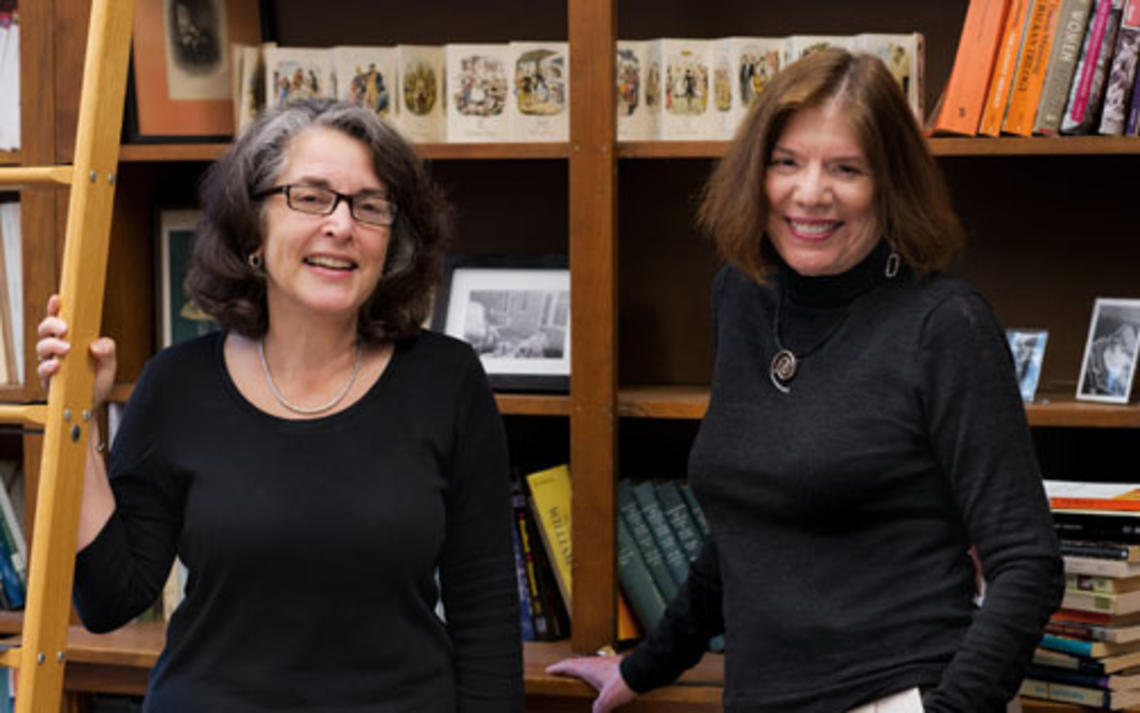Literature: Its Not So Romantic
The popularization of Austen has overly romanticized her fiction, professors say

In Austenland — the latest Hollywood film to pay homage to the work of novelist Jane Austen — a 21st-century woman named Jane visits an English resort where daily life is conducted as if it were the 19th century. Jane goes on hunting parties, learns needlework, and dances at banquets, all with one goal: to fall in love with a man like Austen’s Mr. Darcy.
It’s the kind of romantic story line that dominates the many Austen movies — more than 20 in the last two decades — that have been made, but English professors Maria DiBattista and Deborah Nord think such popularizations of Austen have vastly oversimplified her fiction.
The cultural embrace of Austen as a vessel for romantic love “has done a lot of damage to a real understanding of her work and taken us backward in our comprehension of women writers,” Nord says. The marriage and courtship story lines in some of the novels by Austen and her contemporaries serve as camouflage for more complex and darker themes that often are overlooked, the professors say. Instead of glorifying domestic life, these novels — Persuasion by Austen, Villette by Charlotte Brontë, and Daniel Deronda by George Eliot — embrace themes of escape.
“These writers were intent on writing about history and society and economy, but there was pressure to write palatable fiction that would get published and sell. Women weren’t supposed to engage with the world in that way,” Nord says. The professors’ work is part of a book they are writing on female authors who use their writing to engage in public debates.
Persuasion concludes with the heroine, Anne Elliot, marrying a naval captain and looking forward to a life with him on a ship, “occupying a vessel with no real port,” Nord says, glorifying escape from conventional domestic life. While the novel does end with a happy marriage, Austen’s choice of a groom — a self-made man who has ascended to wealth from humble beginnings — is a means for the author to explore the broader societal upheaval occurring during that period. “We’re not used to thinking of Austen writing about historical change, but that’s what she’s doing,” DiBattista says.
A mythology has grown around the female writers of this period that depicts them as firmly fixed in domestic life and disengaged with the world, the professors say. “The perception is that 19th-century women novelists lived these secluded lives — that Charlotte Brontë lived on the moors and never went to town — but it’s not true,” Nord says. “They did have knowledge of the world, and they wrote about it through escapist fictions.”
In Daniel Deronda, Eliot (the pen name of Marian Evans) has the central character leave England in search of his Jewish homeland. His departure widens the heroine’s understanding of the world. “Home is redefined, and the world is a much larger, more complicated place,” DiBattista says. Almost all of Villette takes place outside of England, pushing the boundaries even more.
These novels came at the end of the authors’ careers, when they felt liberated to enrich their romantic themes with explorations of the broader world, according to DiBattista and Nord. “In these last works, the writers themselves reach a point where they’ve exhausted the material,” Nord says. “They are eager to pry open the novel as they have known it.”










0 Responses